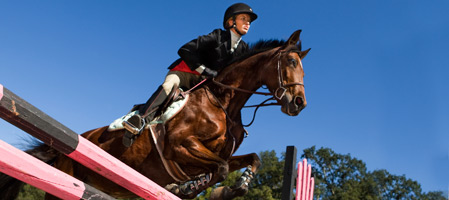Five Things Every Horse Owner Should Know
Date:
Oct 14, 2015

For many, owning a horse is the realization of a lifelong passion. However, it can also increase your risk of financial loss or even lawsuits. Whether you board your horse on your own property or at a professional facility, it’s important to ask yourself, “Am I protected against the potential risks?”
Here are the top five questions horse owners should ask their advisors about their equine coverage:
1) Do you have clear proof of coverage on your policies?
Many owners assume their horses have coverage under their homeowners policies, but limitations or exclusions are common. That is not something you want to learn only after you have had to file a claim.
2) How does the manner in which you purchased your horse affect your coverage?
If the horse was purchased under an entity’s name, such as an LLC or LLP, your homeowners or personal liability policies most likely do not extend coverage to the entity. Therefore, any damages or injuries caused by your horse will be excluded as well.
3) Are other horses boarded on your personal property?
Some insurance providers consider horses kept on your personal property as paying boarders to be an incidental business, which means coverage may be limited or excluded.
4) Do you need workers’ compensation insurance?
State employment laws often require you to carry workers’ compensation insurance if you employ full- or part-time help around your barn. Your homeowners policy may exclude coverage in the event that a worker is injured on your property.
5) Do you or anyone in your family ride, show or compete off your property?
If so, some or all of those activities or the tack and equipment you travel with, may not be fully covered by a basic insurance policy.
There are many factors to consider in protecting yourself against the risks of owning horses—many of which aren’t immediately apparent. The best policy is to protect yourself against the added risk. Sadly, they may not be adequately addressed on one insurance policy, so you may want to consider a suite of policies with the features needed to address your unique lifestyle and needs. Equine liability coverage, equine mortality and medical coverage, homeowners insurance (if you keep your horse on your property) and farm and ranch policies (if your horse ownership is more commercial in nature) can save you from major potential costs down the road.
-----

Gina Teresi is a Partner and Chief Operating Officer at CIC and a consultant with AIG PCG. Entering the small business and entrepreneurial sectors with 22 years of corporate and industry experience, her years of work with AIG and Chubb insurance bring a variety of experiences and expertise to successful families.